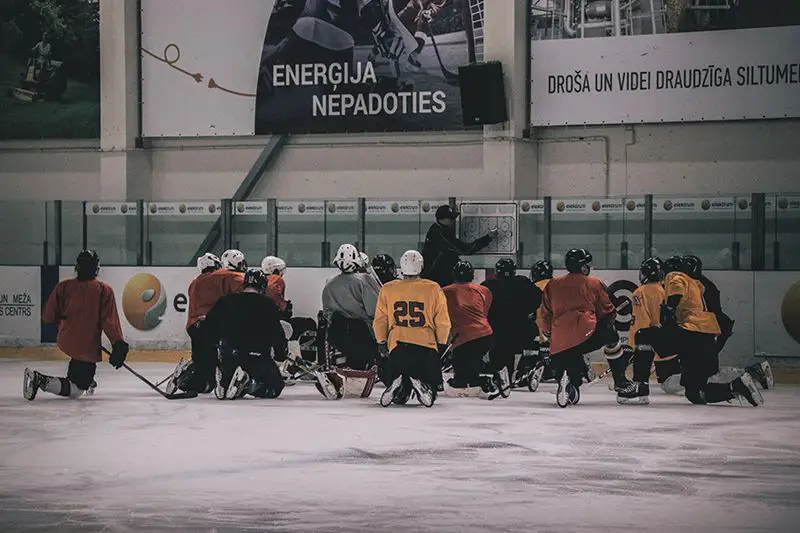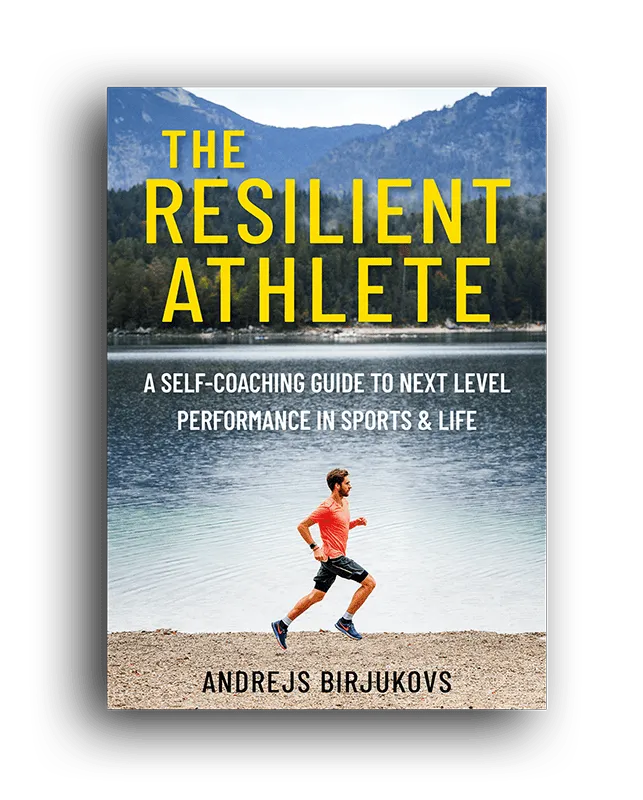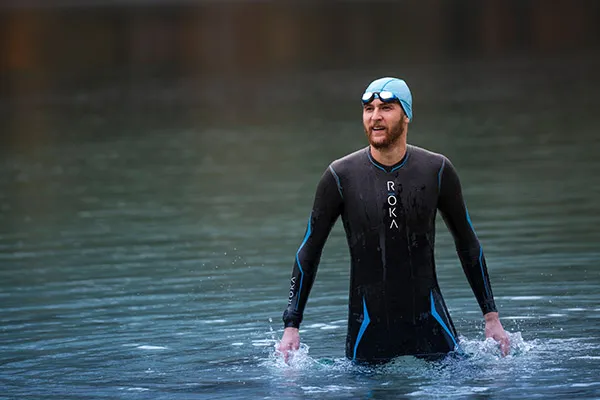Athlete Mental Health: 20 Ways To Overcome Burnout In Sports
Mental stress is part of everyday life. It affects mood, energy levels, happiness and has an overall negative impact on our health. Athletes who are able to effectively reduce emotional stress will benefit from more energy to spend on quality training and better recovery. Moreover, paying attention to athlete mental health can substantially reduce the likelihood of experiencing burnout in sports.
Easier said than done, right?
It’s especially true for athletes who combine training with other full time commitments (job or studies). Many make the mistake of starting a tough training schedule without adjusting it for their lifestyle. As a result, they reach a training plateau and get demotivated by not seeing expected results.
The thing is that our bodies deal with lots of stress on a daily basis. Day job, family or relationship commitments, impact from poor diet, lack of sleep, weather – you name it. A regular person, most probably, is already in a state of chronic stress from everyday life. Add a demanding training schedule on top of that and it’s the recipe for a burnout in sports.
So, what impact does mental stress has on our physiology? And how to minimize it?
Why is mental health important for athletes?
How does athlete mental health affect performance? Directly!
Mental stress occurs when the area of our brain – called hypothalamus – is activated. That can happen when a person gets frightened, prepares to attack, expects a physiological impact, gets scared, angry and so on.
The way our body responds to stress is by going into a ‘fight mode’ and releasing hormones adrenaline and cortisol. These help to optimize energy to overcome dangers. That elevates heart rate, blood pressure and blood sugar level, as well as sends the signal to the brain to prioritize using glucose (from glycogen) for energy instead of stored fat.
Also – since these aren’t necessary in a fight – the body suppresses immune function, reproductive and growth processes.

‘Fight mode’ is a good thing to use during a race or a match, but on a daily basis mental stress interferes with normal body functions and drains energy. In a way, it does essentially the same physiological impact that a training session – without the adaptation benefit. This is the primary factor that over time leads to the burnout in sports.
On top of that, since the brain requires glucose for energy, more stress causes people to crave sugary food and overeat.
Even the smallest stress factors add up during the day and prevent athletes from using their energy efficiently – to train or to recover. Which is why many professionals pay particular attention to athlete mental health and try to reduce mental stress as much as possible. Instead, they build good habits to optimize their training process.
Read also: How To Measure Post Workout Recovery And Avoid Accumulated Fatigue
Chronic stress and athlete burnout
Often people suffer from the condition called chronic strees. That’s the kind of stress that’s always there, but less defined than the ‘acute’ stress. For example, worrying about something that might not even happen.
Stressing about being stuck in traffic might not sound as much, but doing it on a constant basis drains energy levels pretty quickly.
If you’re wondering whether you’re suffering from an athlete burnout, ask yourself the following questions:
- Am I easily fatigued?
- Do I experience difficulty staying focused?
- Am I easily irritated?
- Do I have sporadic energy levels (highs & lows)?
- Do I have problems falling asleep?
- Am I suffering from frequent illnesses or inflammation related (or -itis) injuries – tendinitis, bursitis, fasciitis, etc.?
- Is my motivation or self-esteem low?
If the answer to any of the questions in the above athlete burnout questionnaire is yes, then you’re under too much stress. And it’s likely you’ve developed that condition over prolonged period of time.
Chronic stress is like working as a bike messenger while having a full time job and other life commitments. Riding a bike might sound easy, but doing it every day at every opportunity leaves the body exhausted.
Stress affects athlete mental health. By having too much stress in life – and not giving the body time to recover from it – we push our body to the state when it has to work overtime. That doesn’t leave enough energy for much else in life – even being positive and happy.
What helpes our bodies to relax, then?
Our autonomous nervous system consists of two parts – sympathetic and parasympathetic nervous systems.
The sympathetic nervous system we already discussed – it activates the ‘Fight more’, raises our heart rate & blood pressure and, basically, creates all the mental stress in our life. The parasympathetic nervous system, however, is responsible for ‘Rest & Digest’ processes, like digestion or urination. Its main function is to conserve energy to be used later.
In ideal world, both systems should be balanced. We need some healthy levels of stress to grow, but also time to recover and absorb that stress. Unfortunately, in our fast paced life the stress caused by the activation of the sympathetic nervous system tends to predominate.
So, in order to create more balance and reduce mental stress, we need to include activities that activate the parasympathetic nervous system. Things like meditation, breathing and even cold showers. But more on that below.
Top strategies to maintain athlete mental health (and prevent burnout in sports)
There are endless stress factors out of our control that can affect us. If we let them.
It’s important to remember that it’s our response to what happens around us that activates the hypothalamus (stress area of the brain). We can control that response and, as a result, reduce mental stress we experience.
Stress doesn’t come from any of the external factors. It’s created in our brains by our thought process.
So, most of the strategies below are targeted at changing the mental state to distance from stress. That is what mentally strong athletes do. Be it by intentionally changing the thought process or physically by putting yourself in a situation that forces it to change. Keep in mind that several strategies combined together are more effective at preventing burnout in sports than a single one.
At first some of the strategies below might feel like faking it and that’s ok. It’s a necessary step towards changing the thought process. Over time a less ‘stressful’ response will feel more natural.
#1 Get quality sleep to create a base for athlete mental health
Sleep is by far the most effective way to reduce mental pressure. It’s the only time of the day when the body is in the state of complete rest and can, therefore, recover both physically and mentally. For athletes it’s the main recovery time – when the body is asleep and fasts for extended period of time the production of Human Growth Hormone (HGH) is at its highest. So, not over-eating before bed and sleeping well helps to speed up muscle recovery and adaptation.
Typically, regular people should aim to get around 8 hours of sleep every night, while athletes need around 9. However, many don’t come close to those numbers and, as a result, are in the state of chronic sleep deprivation. Not too strong to feel sleepy, but not enough to feel energetic every morning.
Remember that every hour of sleep until midnight is worth two. That comes as a result of daily Circadian Rhythms – the effect of the amount of light in the environment on the body and, as a result, the time the melatonin production starts.
Sometimes a missing piece in athlete mental health is sleep duration. And short ‘power’ naps (no more than 20 minutes) are a great way to achieve that. They help to ‘reboot’ the nervous system and clear the head, but must be short to avoid getting into deep sleep phase.
Read also: The Power & Science Of Restorative Sleep For Athletes
#2 Take control of your attention
Try to limit the amount of time spent on external things, like watching television, reading the news or using social media. It’s interesting and exciting, sure, but more often than not it only steals our attention with ‘sensations’, creates worry and distracts from what really matters.
When we wake up and reach for our phones first thing in the morning to check the news or social media, we kind of ask the world to tell us what to want and what to focus on. Without even thinking of what do we want to do, we are thrown in the environment where everyone else is richer, better looking, achieves more and overall the world is going to end.
The negative effect of burnout in sports can sometimes be amplified by the use of media. Especially, when athletes focus on the success of others. News, television and social media were not created to make our lives better. Those were created to make companies money – the more time we spend engaged the more stuff gets promoted to us.
#3 Spend time with yourself
Athlete mental health is an individual metric. Which is why instead of focusing on external things, take the time to think of what you want and do that. As Dalai Lama said it once – spend some time alone every day.
Often stress comes from not having enough time to do all the things we need to or want to do. Living a ‘busy’ lifestyle and starting every day with a thought of getting through it as quickly as possible (or waiting for the weekend) doesn’t help to get in touch with whatever is important in life. It doesn’t even leave time to think about it.
When we take some time every day to take care of ourselves the magic starts to happen. That uninterrupted time helps us mentally relax, figure out who we want to become, discover what makes us happy and how to structure our lives around that. Not to mention reduce the psychological pressure and anxiety in sports.
The best time for that self-reflection is early in the morning where there is nobody bothering you and you have all the willpower and energy to make things happen.

#4 Write a diary to notice the approaching burnout (in sports or life)
One great thing to do during ‘alone time’ is to analyze stressful situations when emotions took over. Understanding and labelling these negative emotions helps to recognize them and control them better in the future.
Anxiety, worry, frustration – these emotions are caused by hormones that are released in response to a stress factor. These are not productive and don’t really improve the situation. Anger causes actions we later regret and rarely resolves conflict. Worrying brings more stress. Frustration and complaining only makes us feel worse.
Suppressing emotions never works. Instead, experience them and learn from them – for that purpose diaries are great listeners.
Keeping a diary is a good way to improve athlete mental health become more emotionally resilient. Make a list of things that bring you anxiety or frustration and then think of ways how to address those. And it’s a great reason to ask yourself a few questions from the athlete burnout questionnaire on a daily basis as well.
Personally, I used to be afraid of mass starts in kayaking. Just thinking about upcoming races made me worry a lot. Labelling and recognizing my fears helped to find ways to overcome them and remain confident in other areas.

The Resilient Athlete
A Self-Coaching Guide to Next Level Performance in Sports & Life
Are you aiming to become a resilient athlete who is able to withstand any pressure? Be able to jump on any opportunity? Take any challenge life throws at you head on?
Then this book is for you.
Learn more#5 Change your language to strengthen your athlete mental health
One thing I learned over the years is that how we talk to ourselves and how we interpret life events affects our life view. In particular, when we engage in negative self-talk our mind actually starts to believe it.
In fact, there’s an area in the brain – called Reticular Activating System – that helps the brain notice things and make connections. So, when we focus on the negative our brain naturally looks for things that are wrong with us or in the world and presents that to us.
The good thing is that this mechanism works in the other direction equally well. If we focus on the good things, our lives will naturally become filled with the good stuff. So, find the energy to look for positive things in any situation. Over time positivity will become the reality and the setbacks in life will not carry that much mental stress.
A great way to start is to change the words we use in our daily lives. For example, instead of saying I am not ready for this say I got this. Or instead of saying I can’t do anything right try saying I am learning from my mistakes. Instead of I have to, say I choose to – and so on.
#6 Spend time in a good company to prevent burnout in sports
Spending time with people you care about and who make you smile is a great stress reliever and anti-depressant. Doing so with or without specific purpose helps to distance from whatever is causing the stress or troubling thoughts.
Go for an easy group ride, do a harder session with friends or just gather for a board game evening – it doesn’t matter. Over time you’ll see how your athlete burnout starts to evaporate. Just make sure people you’re spending time with are not ‘energy vampires’ and cause you stress in the first place.
#7 Eat a more natural & light diet
Including more foods that are in their natural state (not processed) in the diet helps to avoid drastic blood sugar changes and reduce inflammation across the body.
After a highly processed or carb-rich meal insulin that the body produces causes blood sugar to drop significantly. That’s a signal for the brain that the body is in danger and it releases cortisol to optimize the energy it has left.
Also, eating a light diet – more frequent smaller meals and less meat & dairy – makes it easy for the body to process food. As a result, it uses less energy for digestion and has more to spare.
Read also: Top 10 Endurance Athlete Diet Mistakes And How To Avoid Them
#8 Meditate to reduce sport-specific and other pressure
We already established how does mental health affect athletic performance. Which means the secret to overcoming stress is to worry less, right? Easier said than done…
Turns out, you can learn to actively clear the mind from troubling thoughts and learn to control it by practicing meditation.
The process of meditation helps to quiet down the noise of daily things and bring the mind to the current moment where there’s no stress. Consistent practice, however, trains the mind to recognize thought patterns and control what to focus on. That’s particularly useful for athletes, as it helps to develop resilience and improve athlete mental health.
The easiest way to start meditating is to take 10-15 minutes daily to sit in a quiet place, breathe deeply and focus only on inhaling and exhaling. Whenever you recognize the mind wandering off to some topic, just gently let it go and bring the focus back to the breath.

#9 Practice gratitude to reduce anxiety in sports
Practicing gratitude has a transformative effect on our psychology. Finding something to be grateful for in a situation has the power to substitute any negative emotion for a positive one. That essentially changes the mental state and helps to reduce mental stress.
It’s really difficult to be angry or upset and grateful for the experience at the same time.
While sometimes it’s hard to find gratitude in hardships, it’s like training the muscle – practice is key. With gratitude it’s not the result that matters, but rather the proactive search for things to be grateful for that does. Over time we’ll naturally feel less stressed about the challenges we face, because we’ll be able to see a ‘higher’ purpose in them.
A great way to find gratitude and reduce pressure in sports is to think about the experience from a learning perspective. Think of what you can learn from the experience and how it makes you better. Not how it stresses you out.
Read also: 8 Inspirational Sports Movies To Watch When You’re Feeling Down
#10 Listen to music to instantly reduce emotional pressure
Music is a great way to relax the mind. It acts as a distraction – when our brain hears a melody it finds attractive, it naturally switches focus from the stress factor to it.
In stressful situations calm music (slow, quiet) tends to work best. It slows down the heart rate, reduces blood pressure and, therefore, reduces the stress response. On a daily basis, though, putting on something that charges you and makes you want to sing helps to feel more alive and happy. Singing along is, in fact, a great way to relieve stress in athletes.
#11 Adopt a winner’s mentality to combat anxiety in sports
Very often athletes put more pressure on themselves to achieve something by thinking when I get somewhere, then. Some might even put their lives on hold until they achieve it.
However, waiting for something to happen to feel fulfilled is not a winner’s mentality. It doesn’t allow a person to feel good about himself and assumes that he has already lost. Not strong enough, not fast enough, not happy enough, not excited enough. That is a big factor behind burnout in sports, as they want to achieve something faster. However, excitement about achievement lasts for some time, but eventually fades. And when the person starts to think what to achieve next he or she will once again feel incomplete.
Instead, adopt a mentality I am what I am now. Accept your strengths and weaknesses, create an action plan to achieve your goals and work on it.
Read also: How To Become A Better Athlete – 38 Practical & Useful Tips
#12 Spend time in the nature
Everyone who wants to maintain athlete mental health should spend more time outdoors. Nature has an amazing power to calm a person down. There is something about the fresh air and the views that creates that magic effect. And of course the fact that there’s much more oxygen outside, which helps the body to process cortisol that was released as a result of stress.
On top of that, spending time in the sun promotes the production of vitamin D in the body. It has a direct impact on mood and energy levels and its deficiency leads to muscle weakness, fatigue and depression.
As little as 15 minute long exposure to direct sunlight is sufficient to generate the daily dose of vitamin D.
If you’re experiencing symptoms of a burnout in sports, go for a hike or an easy run outside. Do it alone or in a good company – doesn’t matter – but do it often until you start feeling you again.

#13 Don’t take anything personally
Taking something personally is a path to either an argument with someone or getting stuck in a destructive thought pattern (doubt, worry, fear, etc.). Either way, doing so only creates more stress.
A much healthier approach to interact with the world is to consider what Don Miguel Ruiz writes in his book The Four Agreements:
Nothing other people do is because of you. It is because of themselves.
Everyone lives with their own understanding of reality and express themselves differently. Take yourself out of the picture and try to focus on the fact of the matter instead.
Someone was rude to you as you bumped into him not because you are a bad person. It’s because that someone is having a bad or stressful day himself. Don’t blame yourself for something other people think.
#14 Get a massage
Our body is one organism and we are connected in a physical and mental way. That is, when our muscles are tense it translates to our mind and we feel more stressed. And it goes the other way around too – when we are stressed in our head, we tend to tighten up as our nervous system is not able to relax and is always on full alert.
Massage is a great way to relieve tightness in the muscles and promote blood flow. It’s a great way to reduce mental pressure and re-energize the entire body as well.
Self-massage has a similar effect on the muscles as traditional one and is a great cost-effective alternative.
#15 Take a training break to work on your athlete mental health
It’s a good thing when the release of cortisol (stress hormone) is followed by a period of rest. That’s how nature intended it to be. However, many athletes don’t give their bodies enough rest. They train hard throughout the year, which results in constantly elevated cortisol levels. Over time this leads to chronic stress, training plateau or even athlete burnout (in sports or otherwise).
Sometimes the best thing for athlete mental health is to take a break. Take one at the end of every season or after an important race. Consider going on vacation or trying a different sport. Having no structure for a change has a great power to relax the mind. And who knows what kind of new passion it can spark.
It doesn’t have to be a period of complete rest, though. Take a couple of weeks easy – at low intensity with no structure – just for yourself. Use that time to let the body recover and don’t be afraid of losing fitness. With correct strategy you’ll come back even stronger.
#16 Maintain your athlete mental health by training in the ‘present’
Be realistic and train based on where your physical condition currently is – not where you want it to be. When we compare ourselves to something we believe is better we get emotionally attached to that condition and disconnected from reality.
The only person we should compare ourselves to is who we were yesterday.
So, don’t lie to yourself by trying to execute sessions that elite athletes do if you can’t yet match their result. It’s inefficient and will only create more stress, frustration and, most probably, lead to over training. Instead, discount those training sessions down to your level and build from there.
#17 Get a hobby to manage stress in sports
Having an outlet or activity where you can utilize excessive mental energy is a great way to reduce mental pressure. It works the same way as music does – by distracting the mind from a stressful situation to something you enjoy doing.
Make it something other than training, though. It’s already a large part of life for an athlete. Better engage in something creative (writing) or learn a skill (playing music, cooking).
Having diverse hobbies also helps to get some perspective on what really interests and sparks passion in our lives. It also helps to realise that we can’t focus on one single area in life all the time. At some point we’ll feel unfulfilled in others.
Read also: Finding Fulfillment In Life – 20 Ideas To Stay Positive & Happy
#18 Easy physical exercise to navigate burnout in sports
Sustained low intensity physical activity – in Zones 1 & 2 – is a great way to reduce mental stress. Moving the body promotes blood circulation, reduces blood pressure and increases energy levels. But more importantly, prolonged cyclical motion (repeating the same movement over and over) helps to put the mind to rest and makes a person feel more present in the moment.
If you can’t handle the silence, listen to a podcast as you exercise. It helps to take the mind away from troubling thoughts.
Yoga is another great way to unwind. Besides stretching out tight muscles it also gives an opportunity to tune in with your body and feel more mindful.
#19 Get great at time management
Being good at managing time can improve focus and help to minimize nerves and anxiety both on a daily basis and before a race.
Time management is all about staying organized. A great way to approach it is to keep track of important tasks and plan your time.
- List down all appointments, things to be done and ideas that circle around in your head.
- Prioritize the list by moving most important actions or tasks to the top.
- Define the next immediate action to be taken for each of the tasks.
- Schedule every appointment and each individual action into your calendar.
- Repeat as you get more ideas or tasks.
Not only does this approach helps to organize thoughts and reduce mental stress, but also get more done. And that in itself gives a massive motivational boost.
#20 Be easy on yourself and your athlete mental health will thank you for it
Above all, to prevent burnout in sports (or life) don’t take things too seriously all the time. Most stressful situations we find ourselves in are not worth stressing about. Is it really the end of the world that the phone battery died or there’s no place to park?
Nobody has it figured out. Life is very unpredictable and while we can spend tons of energy organizing everything, there’s still a chance something will go wrong. And we can never know what it will be.
Don’t be afraid to look silly or embarrass yourself. Have more fun – both with others and at yourself.
Make a mental shift to a more flexible perspective. Our perception of reality becomes our reality. So, when we’re serious about every area of our life we risk to lose that sense of play which gives life its colors.
Did you find this information useful? Share the post with others using the buttons below.
Tags In
Andrejs
Related Posts
Leave a Reply Cancel reply
GET A FREE TRAINING PLAN
Subscribe to my email list and get access to a free 4-week “back in shape” training plan
You’ll also get two full-body strength sessions and some other goodies!

How did I get here?
Hey there! My name is Andrejs and I am here to inspire, entertain and get you fit for any adventure.
I went from being an over trained pro athlete to an endurance coach sharing how to listen to your body and live life to the fullest.
Traveling, new sports & activities brought new meaning to my training and made it much more effective, fun and enjoyable. And I'm here to help you do the same.




